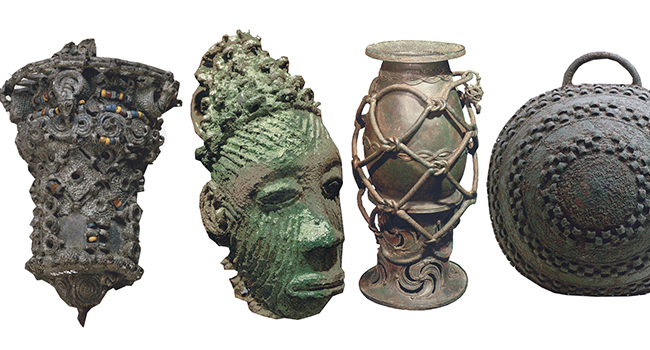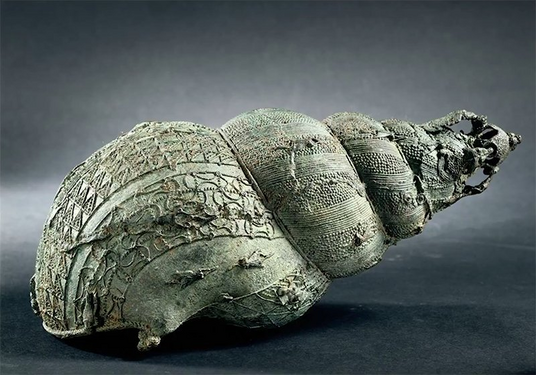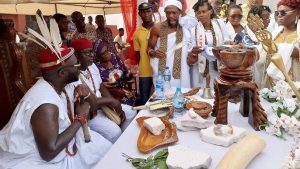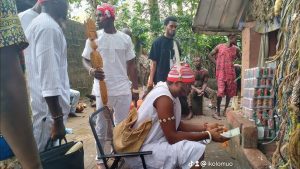Rising in southeast Nigeria, Igbo Ukwu is well-known for its archaeological value and provides great new perspectives on the ancient Igbo culture. Renowned in the 1950s for major archaeological finds, the site offers important evidence of the complexity and sophistication of pre-colonial Igbo civilization. The history, main conclusions, cultural relevance, and continuous influence of Igbo Ukwu on our knowledge of ancient Igbo civilization are investigated in this paper.
Historical Context
Located in Nigeria’s Anambra State, the area has long been home to Igbo people. One of the first and most important sites of Igbo culture, the archeological finds at Igbo Ukwu go back to around the 9th century AD. The results at this location have enabled academics to put the political, social, and economic systems of the Igbo people together before European arrival.
A local farmer discovered relics in Igbo Ukwu first in 1959, which set off an archaeological dig headed by eminent Nigerian archaeologist Thurstan Shaw. The dig turned up a treasure of objects, including ceremonial items, ceramics, and well-crafted craftsmanship, therefore offering a window into the rich and sophisticated cultural legacy of the Igbo people.
Key Findings
Igbo Ukwu’s excavation revealed a variety of relics that have proven vital for knowledge of the prehistoric Igbo society. Among the most noteworthy revelations are:
- Bronze Artifacts
The location produced an amazing array of bronze artifacts, ranging from ceremonial pieces to weaponry to ornamental accents. Often discovered in funeral settings, these bronzes are distinguished by their great degree of artistic detail and workmanship. The bronze objects point to a very advanced metallurgical ability and show that the Igbo Ukwu civilization had access to sophisticated trading networks and technologies.
- Ceremonial Items
Discovery of ceremonial things, like religious artifacts and big ceremonial containers, suggests a complex spiritual and religious life among the ancient Igbo. Often beautifully ornamented, these objects show the value of ritual and ceremony in Igbo culture and the part spirituality plays in social order and government.
- Pottery
The site yielded a great variety of bowls, jars, and figures as well as more complex pieces. The unique patterns and complex designs of the ceramics help one to understand the everyday lives and creative traditions of the Igbo people.
- Burial Practices
The burial sites in Igbo Ukwu provide comprehensive knowledge of the traditional Igbo funeral customs. High-quality objects found in burial settings point to a hierarchical social system with different duties and statuses, therefore implying that these people were of great social level.

Cultural Significance
The results at Igbo Ukwu have important cultural ramifications for knowledge of the ancient Igbo culture. The relics provide proof of a highly intelligent and orderly civilization with extensive technical knowledge, intricate social systems, and a rich spiritual life.
Especially the bronze pieces are remarkable for their artistic quality and workmanship. They show that the Igbo Ukwu people had a refined metallurgical heritage not known in this area before. The existence of such sophisticated metalwork exposes the inventiveness and originality of past African civilizations and questions traditional ideas of pre-colonial African society as technologically backward.
Furthermore illuminating the religious and social aspects of Igbo life are the ceremonial objects and funeral customs found at the site. They contend that the culture was mostly shaped by ritual and ceremony, therefore impacting social and political systems. The deliberate arrangement of relics at funeral places reveals a great regard for the dead and a belief in a hereafter, which were fundamental values of the Igbo perspective.
Ongoing Impact
Research on African history and archaeology has been permanently changed by the finds at Igbo Ukwu. They have cleared historical distortions and given a more sophisticated knowledge of pre-colonial African societies. Scholars researching the history and culture of the Igbo people and other West African civilizations now often use the site as a main source.
Moreover, the objects from Igbo Ukwu are vital for cultural legacy and preservation. Their influence on scholarly study as well as general curiosity has helped African art and history to be more appreciated. Using museums and other establishments, the objects provide public education on the richness of African cultural legacy and the successes of past civilizations.
Furthermore affecting present Igbo identity and cultural pride are ongoing research and preservation of the Igbo Ukwu site. Understanding their historical background helps modern Igbo people to relate more to their history and customs. It reminds us of the vast and rich history of the Igbo culture and supports the need for a cultural legacy in forming identity and society.
Final Thought
Igbo Ukwu is evidence of the complexity and depth of old Igbo society. The site’s archaeological finds have given important new perspectives on the social, cultural, and technical accomplishments of the Igbo people. By clarifying the complexity of pre-colonial Igbo society, Igbo Ukwu has shown the sophisticated character of African civilizations and challenged historical misunderstandings.
Igbo Ukwu’s continuous research and preservation help us to better grasp African history and cultural legacy. Examining the history of Igbo Ukwu helps us to appreciate the accomplishments of the ancient Igbo people as well as the continuing relevance of their spiritual and cultural practices.
Please read all our stories on African Culture here




